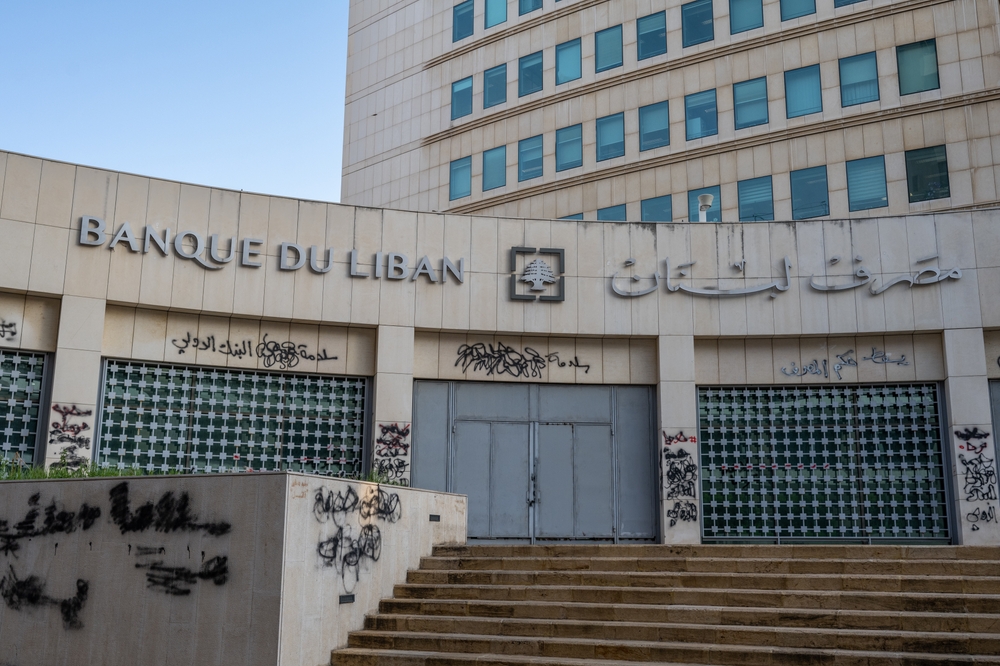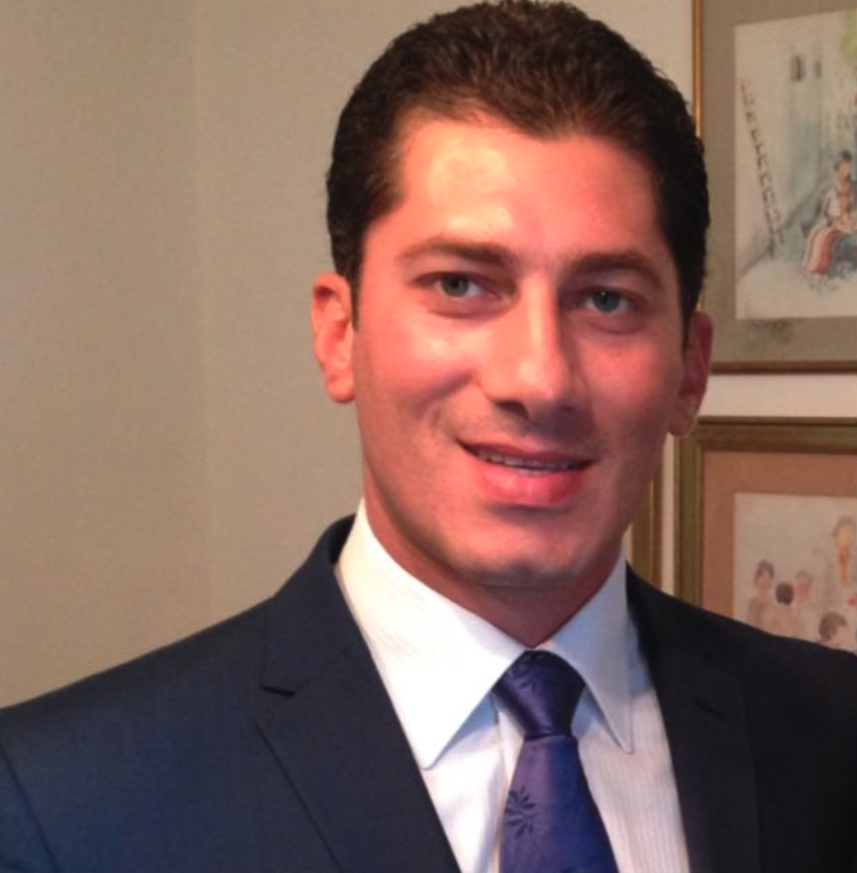RIYADH: The arrest of Riad Salameh, Lebanon’s former central bank governor, has sent shockwaves through Lebanon’s financial and political spheres.
After over a year of intense scrutiny and numerous allegations of financial misconduct, Salameh’s apprehension is being closely analyzed from multiple perspectives.
Some believe his arrest might be an attempt to deflect attention from systemic failures within Lebanon’s financial sector, while others regard the arrest as a significant development many hold both views.
One banker, who chose to remain anonymous, provided a nuanced interpretation of the situation when speaking to Arab News.
“My initial reaction is that the government is seeking a scapegoat to avoid taking responsibility for the financial crash,” he said.
Despite this, he acknowledged that Salameh was not entirely blameless.
The banker expressed skepticism about the effectiveness of the Lebanese judiciary in tackling high-profile financial crimes.
“The Lebanese judiciary lacks impartiality,” he stated. “Their attempts to bring criminals to justice have been ineffective, and the judges’ lack of experience in financial investigations is significant.”
He also questioned the credibility of seeing the arrest as a gesture toward international bodies like the Financial Action Task Force and the International Monetary Fund.
“I don’t believe this will help,” he said, referring to Lebanon’s tarnished reputation due to inaction.
His concern reflects a broader skepticism about whether the arrest will lead to substantive reforms or merely serve as a symbolic act.
On the topic of investor confidence, the banker was pessimistic. He argued that the damage to Lebanon’s financial system had already been done and meaningful changes are needed to ensure a true recovery.
“Politicians need to take responsibility and move forward, even if it means making difficult decisions,” he said.

The entrance of Lebanon's central bank in March 2023, covered in graffiti by protesters over the liquidity crisis which started in 2019. Shutterstock
While Lebanon’s central bank is supposed to be an independent organization, the banker highlighted that the governor’s tenure was marked by a preoccupation with political decisions rather than focusing on the financial management crucial to the institution.
This raises a critical question: Is Salameh solely to blame for Lebanon’s financial turmoil, or is he just one component in a much larger system of mismanagement and corruption?
According to the banker, the situation reflects a broader systemic issue.
“The simple words to describe this are mismanagement and corruption to the highest level,” he said, adding: “The irony is that it hasn’t really stopped.”
This perspective suggests that while Salameh’s arrest might address one aspect of the crisis, it does not tackle the deep-seated issues that have plagued Lebanon’s financial and political systems for years.
George Kanaan, honorary chairman of the Arab Bankers Association, echoed some of the sentiments expressed by the anonymous banker but also provided a critical perspective on Salameh’s alleged misconduct.
Kanaan expressed a clear stance on the matter, and said:: “I think he deserves to be in jail, and I think he has clearly committed theft.”
He lamented that the more substantial issue of financial mismanagement, which he believes is not prosecutable, is overshadowed by Salameh’s individual actions.
Another anonymous banker provided a detailed analysis of the political context surrounding Salameh’s arrest, suggesting several possible scenarios that could explain the timing and nature of this high-profile event.
He posited that Salameh’s arrest might be linked to broader political maneuvers and speculated on three primary scenarios.
Firstly, the banker suggested that Salameh’s arrest might be part of a larger political deal, potentially positioning him as a scapegoat for the pervasive corruption among Lebanese politicians. “His arrest might be part of a broader political deal,” he said.
This theory hinges on the idea that Salameh could be sacrificed to placate public outrage and international pressure, thereby protecting other, more powerful figures who may be equally or more culpable.
The banker pointed out that Ali Ibrahim, the financial prosecutor of Beirut — who is reportedly a protégé of the head of the country’s parliament Nabih Berri — has just pressed charges of fraud and money laundering against Salameh.
Berri was once one of Salameh’s major protectors, which adds a layer of complexity to the current political dynamics.
Another scenario proposed is that Salameh might have felt personally endangered and decided to turn himself in as a form of self-preservation.
The banker highlighted that Salameh had been publicly summoned over the past 13 months but had consistently failed to attend hearings.
His arrest, surrounded by high levels of secrecy and occurring without the presence of his legal team, could indicate that he feels safer in jail.
“He might be feeling endangered due to threats, and he decided to turn himself in so he would be protected behind cell bars,” he noted.
The third scenario was that Salameh’s arrest could be a prelude to a future clearing of his name.
According to this view, the arrest might be part of a strategy to demonstrate that the Lebanese judiciary is taking significant actions against high-profile figures.
If Salameh is eventually declared innocent, it could imply that the Lebanese judiciary system has conducted a thorough investigation and that Salameh’s arrest was a procedural step rather than an indictment of his guilt.
“He was arrested to be cleared and declared innocent at a later stage,” the banker suggested.
This would signal that the judiciary is making a concerted effort to address corruption, albeit in a way that ultimately exonerates Salameh.
The banker emphasized that Salameh’s role as the central figure in Lebanon’s financial system adds considerable weight to these scenarios.
“He is the secret keeper of all the financial transactions that happened in Lebanon,” he said, underscoring the pivotal role Salameh played in managing and orchestrating financial dealings.
His deep involvement in the financial system and knowledge of sensitive transactions make him a key figure in understanding Lebanon’s financial mismanagement, which further complicates the political and legal landscape surrounding his arrest.
Legal analysis: implications and challenges
Jihad Chidiac, a Lebanon-based attorney, said the country was “positively surprised” by the arrest, but raised questions about its broader implications.
He noted that Salameh’s prosecution in Lebanon could potentially preclude further international legal actions due to the principle of non bis in idem, or double jeopardy.

Lebanon-based attorney Jihad Chidiac. File
Chidiac highlighted the significance of the arrest in the context of Lebanese judicial capacity, saying: “Riad Salameh’s arrest represents a crucial step toward accountability of high-profile figures for alleged financial crimes.”
He also addressed the potential for the arrest to influence Lebanon’s relationship with international bodies.
According to the attorney, the arrest could be a strategic move to align with international expectations and potentially improve Lebanon’s standing with the FATF and IMF.
However, he cautioned that the arrest alone might not significantly advance Lebanon’s negotiations with these bodies, given the slow progress on reforms.
Chidiac expressed concerns about the broader impact of Salameh’s arrest on corruption and financial mismanagement in Lebanon. “Addressing these systemic problems will require a more comprehensive and sustained approach,” he said, emphasizing the need for effective legal actions and institutional reforms.
The attorney emphasized that while this case sets a new precedent — given that no other high-ranking figures have faced similar legal actions before — the eventual outcome remains uncertain.
He highlighted the concern that if Salameh were to disclose crucial information, it could potentially jeopardize a large number of public and prominent figures.
This adds an extra dimension to the case, as the ramifications of his revelations could be far-reaching.
“The possibility of such disclosures raises significant concerns about the stability of Lebanon’s political and financial institutions, and how they might react to protect themselves from further exposure,” Chidiac said.
Amine Abdelkarim, a criminal law specialist, echoed that reaction, as he argued that Salameh’s arrest was long-overdue.
“The arrest of Riad Salameh is a purely legal act that should have occurred years ago. However, political interference prevented it,” he said.
Abdelkarim noted that “since the economic crisis and the October 17 revolution, European countries like Belgium, France, and Germany have pursued Salameh for crimes related to money laundering and illicit enrichment.”
Lebanon now faces a pivotal moment, as its judiciary must undertake a serious investigation into what Abdelkarim calls “the largest financial crime Lebanon has witnessed since its establishment, and perhaps the largest global financial crime at the level of a sovereign state.”
The integrity of this process is underscored by Abdelkarim’s confidence in the investigative judge, Bilal Halawi, who he believes is key to ensuring the judiciary’s credibility.
Abdelkarim also touched on Lebanon’s complex relations with foreign nations, particularly European countries that have issued arrest warrants for Salameh.
He noted that these countries are likely to demand Salameh’s extradition, creating a legal dilemma for Lebanon.
“We cannot predict how relations might evolve if Lebanon refuses to hand over Salameh for prosecution abroad,” the law specialist said as he reflected on the diplomatic and legal challenges that lie ahead.
Regarding the possibility that Salameh’s arrest is part of a broader political negotiation, Abdelkarim expressed caution.
While he acknowledged that such a scenario is possible, he doubted that Salameh would accept being the sole scapegoat for the financial collapse.
“There are many political figures involved with Salameh, and I don’t believe he will be the only victim,” he remarked, leaving room for further developments in the political and legal fallout from the arrest.
On the potential for Salameh’s arrest to trigger broader reforms, Abdelkarim was cautiously optimistic.
“This may lead to a correction in the way state funds are managed,” he said, noting that international pressure could push Lebanon toward necessary reforms.
However, he tempered this optimism by acknowledging the political deadlock in Lebanon, particularly the ongoing failure to elect a new president, which may delay meaningful change.
From a legal perspective, Abdelkarim outlined the key charges against Salameh, including embezzlement of public funds, money laundering, and illicit enrichment.
He warned of possible legal maneuvers by Salameh to obstruct the investigation, such as withholding crucial documents.
Abdelkarim emphasized the need for judicial reform, particularly the passage of the judicial independence law, which has been stalled in parliament for years.
As Lebanon grapples with these developments, the effectiveness of the judiciary in handling such high-profile cases will be closely watched.
It could serve as a litmus test for the country’s commitment to tackling corruption and restoring public trust in its institutions.
The coming days will be crucial in determining whether this arrest will lead to meaningful reform or merely serve as a symbolic gesture.





















